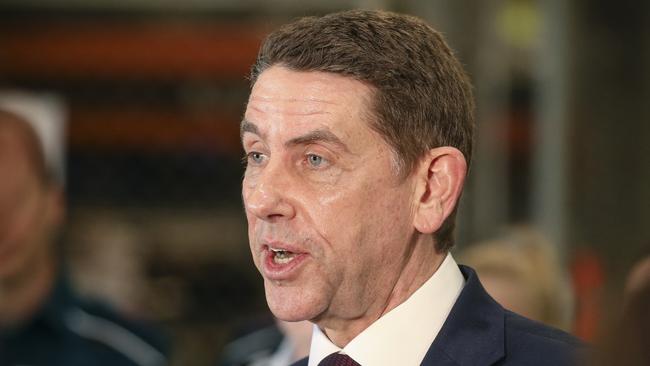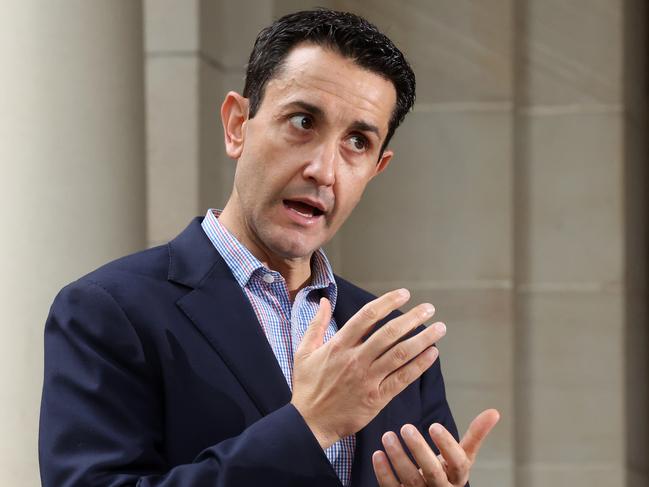Queensland abandons plans to pay off debt, throws billions into cost of living
Queensland Treasurer Cameron Dick has abandoned plans to pay off the state’s mounting debt, saying his only focus is on handing out billions in cost of living relief measures in Tuesday’s budget.

Queensland Treasurer Cameron Dick has abandoned plans to pay off the state’s mounting debt bill, saying his only focus is on handing out billions of dollars in cost-of-living relief measures in Tuesday’s budget.
In a pre-election spending spree, Mr Dick’s fifth budget will thrust the state into a $3bn deficit next year and push total debt to a record $188bn by mid 2028 to deliver energy rebates, slashed public transport fares and cheaper car registration fees.
Budget papers will show that on the government’s preferred measure of net debt, which excludes debt carried by state-owned companies, borrowings will skyrocket from $2.65bn in mid-2022 to $73bn by mid-2028.
Mr Dick said he was choosing to increase borrowing over implementing austerity measures.
“Our position is clear, the focus of what we have to do is to support Queenslanders in a time of need,” he told the Weekend Australian.
“It’s very apparent to me, as it has been since the last budget, the cost-of-living pressures on Queenslanders and Queensland families remain significant.
“We are in a very strong position compared to our competitor states, NSW and Victoria.”
Victoria’s budget, released in May, imposed heavy spending cuts and delayed the rollout of major infrastructure projects with debt forecast to reach $190bn by 2027-28. The NSW state budget will be handed down on June 18.
Queensland’s net debt position is better than that of NSW and Victoria, partly because it is the only state with a fully funded superannuation scheme for its public servants.

Opposition Leader David Crisafulli promised a debt reduction strategy 19 months ago but has refused to release it until closer to the election. He says taxes and debt would be lower under an LNP government but will not articulate how he plans to achieve that.
Mr Dick was able to begin to pay down debt after Covid through the doubling in value of the state’s Titles Registry, but now has no plans to reduce borrowings or set a target to regain the sate’s AAA credit rating – downgraded in 2009. He said the rapid escalation in debt was necessary to fund expensive renewable energy projects and other infrastructure.
“We have had unprecedented population growth, particularly in the last two financial years, that no one could predict,” he said.
“It’s why we have to borrow, to invest into infrastructure to manage that population growth, and we’ll continue to do that.”
The budget will also show Queensland’s gross state product has for the first time exceeded half a trillion dollars.
“So that means the Queensland economy is now bigger than the economy of New Zealand, the economy of Portugal, the economy of Finland and the economy of Greece,” Mr Dick said.
Tuesday’s budget will include $1bn in the capital statement to fund land acquisitions and early works for the controversial Pioneer-Burdekin pumped hydro project near Mackay. The project, which has no environmental approvals and is still being subjected to engineering studies, is expected to cost more than $12bn.
The cost of the government’s infrastructure program has skyrocketed to $107bn over four years, an increase of $18bn from last year’s budget.







To join the conversation, please log in. Don't have an account? Register
Join the conversation, you are commenting as Logout